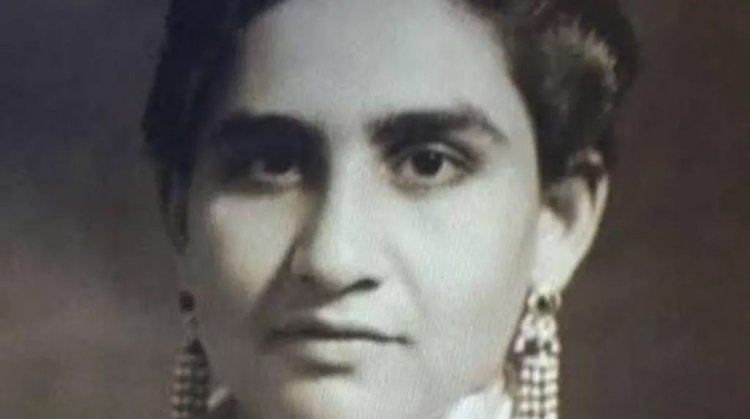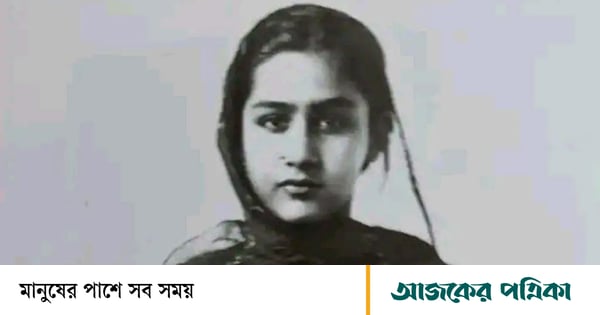One who cooks, also ties hair—a unique example of this proverb is Abida Sultan, the princess of Bhopal. She was a very different kind of princess since childhood. He had short hair, hunted tigers and played great polo. From the age of 9, he drove a Rolls Royce car and flew an airplane. You were also good at swordsmanship.
Abida Sultan Born in 1913 to a Muslim ruling family in Bhopal, Uttar Pradesh, British India (now in the state of Madhya Pradesh), Abida was a descendant of the brave 'Begums'. Abida's family ruled Bhopal for more than a century. She upheld this tradition by defying the stereotypes surrounding ordinary women, especially Muslim women.
Abida opposed veiling. At that time, Muslim and some Hindu women had the custom of covering themselves and staying separate from men. Abida was brave and independent from childhood. At the age of 13, he rebelled when his grandmother forced him to live within the veil. Due to his courage and his father's generous spirit, he never again obeyed the veil. He became the heir to the throne of Bhopal at the age of 15.
For decades he managed the fortune left by his father. He developed close relations with the leading freedom fighters of India during his rule. He was also a direct witness of the hatred and violence that spread after the partition in 1947.
Abida prepared himself to become a ruler from childhood. He was raised by his grandmother, the strict disciplinarian Sultan Jahan—himself the ruler of Bhopal. In her autobiography, 'Memoirs of a Rebel Princess', published in 2004, Abida Sultan mentioned how she had to get up at 4am to recite the Qur'an. After that, apart from learning sports, music and horse racing, they also had to do work like sweeping the house and cleaning the toilet.
In an interview about her childhood, Abida Sultan said, 'We girls never learned to think of ourselves as inferior because of gender. Everything was equal. We had all the freedom like boys, we could ride horses, climb trees, play any sport. There were no restrictions.'
As the heir to the throne of Bhopal, Abida was married at the age of 12 to Sarwar Ali Khan, the ruler of the neighboring kingdom of Kurwai and a childhood friend. In his autobiography, he has also described in detail about his funny experience with marriage.
Abid wrote in his book that one day he was having a pillow fight with his cousins. At that time his grandmother entered the house and asked him to get ready for a wedding. But no one told him that the marriage was his own. Abida writes, 'Nobody groomed me (for marriage) or taught me how to behave. As a result, I entered the wedding ceremony, pushing aside the crowd of women there, open-mouthed and as usual grim-faced.'
The marriage of this Bhopal princess lasted a very short time—less than a decade. His married life was difficult. This was due not only to her young age, but also to the strict, religious environment of her husband's family. Abida candidly admits that the lack of knowledge and discomfort about sexuality had a profound effect on her married life.
Abida wrote in her book, 'Soon after marriage I entered the world of marital pain. I didn't realize that the events of the wedding night would make me feel so terrified, numb and unholy. I could never accept the relationship between husband and wife.' As a result, his marriage broke up.

In a study of intimacy and sexuality in the autobiographical writings of South Asian Muslim women, historian Sivan Lambert-Hurley shows that Abida's frank description of sexuality shatters the conventional wisdom that Muslim women do not write about sexuality. Abida's writing presents the character of a rather fearless woman.
Abida left her in-laws Kurwai and returned to Bhopal after the marriage broke up. However, Shahriar Mohammad Khan, the only child, got into a dispute with her husband over the guardianship. Fed up with this long feud and not wanting to lose her son—Abida took a bold step to stop her husband. On a warm night in March 1935, Abida drove three hours to her husband's house in Kurway. There, she entered her husband's bedroom, took out a revolver and threw it into his husband's lap, saying, 'Either shoot me, or I will shoot you.'
That day, Abida got into a hand-to-hand fight with her husband and won. After that, he returned with his own child and raised the boy. Abida Sultan headed the Bhopal Cabinet from 1935 to 1949. Bhopal was then merged with the Indian state of Madhya Pradesh.
Abida participated in the round table meetings held on the invitation of the British government to determine the future of Indian governance. There he met Mahatma Gandhi, Motilal Nehru and his son Jawaharlal Nehru. He also witnessed the deterioration of Hindu-Muslim relations and the violence that followed the partition of 1947.
In her memoirs, Abida describes how she was discriminated against in Bhopal. Although his family lived peacefully in Bhopal for centuries, they were seen as 'outsiders' after the partition of India. In an interview, he recounted a particularly horrific memory during the Hindu-Muslim riots.
One day the Indian government informed him that a train of Muslim refugees would reach Bhopal. He went to the station to look after the passengers of the train. In this regard, he said, 'As soon as the rooms were opened, it was seen that everyone was dead.' Such violence and communal distrust forced him to migrate to Pakistan in 1950.
Abida secretly leaves Bhopal with her son, hoping for a better future. In Pakistan too, she became involved in active politics and worked for democracy and women's rights. He died in Karachi in 2002.
After Abida moved to Pakistan, the Indian government declared her sister the heir to the throne. Even today in Bhopal, Abida is known by her nickname 'Biya Huzur'. Journalist Shams ur Rahman Alvi, who has researched the women rulers of Bhopal, said, 'Religious politics of the last few years have ruined her tradition, she is not talked about much. But his name is not so easily forgotten.'
References: BBC

